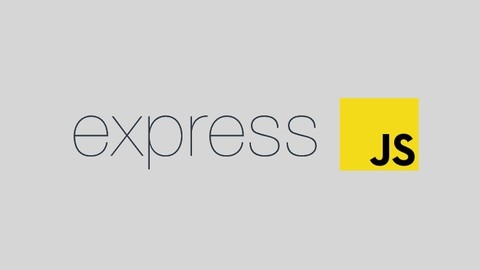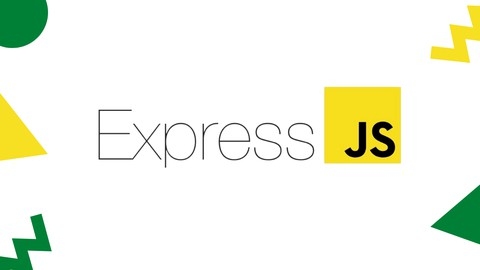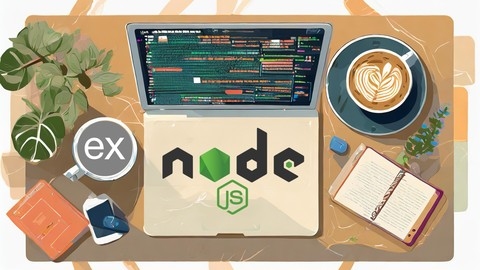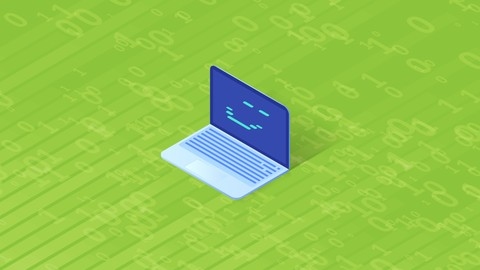Express.js is a robust and popular Node.js framework used to build web applications with JavaScript.
It provides a streamlined and efficient way to handle HTTP requests, define routes, and create dynamic web pages.
Mastering Express.js allows you to develop powerful web applications, RESTful APIs, and seamless back-end integrations, opening doors to exciting opportunities in web development.
Finding the perfect Express.js course on Udemy can be a challenge, especially with the overwhelming number of options available.
You’re searching for a course that provides a strong foundation in the framework, covers essential concepts with practical examples, and helps you build real-world projects.
For the best Express.js course on Udemy overall, we recommend “Just Express (with a bunch of node and http). In detail.”.
This comprehensive course provides a well-structured learning path from the basics of Express.js to advanced topics like authentication, databases, and file uploads.
You’ll gain valuable hands-on experience through numerous practical projects and build a portfolio of web applications.
While this course is our top pick, there are other great options available that cater to different learning styles and needs.
Keep reading to explore our curated list of recommendations and find the perfect Express.js course to propel your web development journey.
Just Express (with a bunch of node and http). In detail.
This course starts by covering the fundamentals of how the internet works, HTTP requests, and setting up a basic Node.js server.
You’ll then dive into Express itself, learning how to create routes, serve static files, and use middleware.
The course explores different rendering engines like EJS, Handlebars, and Pug for server-side rendering.
It also covers handling requests, parsing data from forms, query strings, and URL parameters.
The instructor walks you through building a Movie Fan app, integrating an API and implementing features like search.
You’ll also build an API from scratch, learning how to structure routes and middleware.
The course touches on authentication with Passport and OAuth 2.0, working with databases like PostgreSQL, MongoDB, and MySQL.
You’ll learn how to upload files directly to S3 from the browser using Express.
Additionally, it covers integrating React with Express.
Throughout the course, you’ll find supplemental content on topics like rate limiting, HTTPS, and logging.
The instructor also provides monthly coding challenges to reinforce your learning.
You’ll build real-world projects along the way, helping you gain practical experience.
Master ExpressJS to Build Web Apps with NodeJS&JavaScript
The course starts by setting up the Express.js system, ensuring you have the proper environment to work with this popular Node.js framework.
You’ll then dive into lectures and downloadable slides that provide an overview of Express.js and its core RESTful API capabilities through demos.
The course covers essential Express.js concepts like configurations, middleware, and the REST methodology.
You’ll learn how to create GET routes and work with request and response objects, seeing practical examples in a RESTful API demo.
To solidify your understanding, you’ll complete the ExpressWorks workshop, tackling exercises like building a “Hello World” app, serving static files, using templates like Jade, handling forms and stylesheets, working with query parameters and JSON data.
Additionally, you get bonus materials like an Express.js 4 cheatsheet and access to the source code for a large Express.js project, HackHall.com.
This hands-on approach ensures you gain practical experience working with Express.js and building web applications using Node.js and JavaScript.
Express JS Fast Learn for Beginner
You’ll start by understanding the fundamentals of Node.js and Express.js, setting up the necessary development tools for a smooth coding experience.
Once the groundwork is laid, you’ll dive into the core concepts of Express.js.
You’ll learn how to install and set up Express.js, creating basic routes to handle different HTTP requests.
The course will guide you through handling POST requests, working with route parameters, and querying data using query parameters.
As you progress, you’ll explore more advanced topics like handling PUT and DELETE requests, which are essential for building robust APIs.
You’ll also learn how to download files as a response, redirect users to different routes, and render HTML templates dynamically.
Serving static files like images, CSS, and JavaScript is crucial for building modern web applications, and this course covers that aspect as well.
You’ll learn how to respond with appropriate status codes, ensuring your application follows best practices and provides meaningful feedback to users.
Middleware is a powerful concept in Express.js, and this course will teach you how to leverage it to add functionality to your application.
You’ll learn how to create custom middleware functions and use existing ones to handle tasks like logging, parsing request bodies, and more.
Throughout the course, you’ll work with real-world examples and practical exercises, ensuring you gain hands-on experience with Express.js.
EXPRESS.JS: Learn Node! Node js & Express js - Master Nodejs
You’ll start by understanding the fundamentals of Node.js, including its architecture, module system, and event-driven nature.
You’ll learn how to set up your development environment and write your first Node.js programs.
The course then dives into the Node Package Manager (NPM), teaching you how to manage dependencies, install packages, and work with the package.json file.
This is crucial for building robust Node.js applications.
Once you’ve mastered the basics, you’ll learn to build RESTful APIs with Express.js.
You’ll explore routing, handling HTTP requests (GET, POST, PUT, DELETE), input validation, and testing with Postman.
The course also covers advanced Express.js techniques like middleware, configuration for different environments, and integrating databases.
Moving on, you’ll work with MongoDB and Mongoose, a popular Object Data Modeling (ODM) library for MongoDB and Node.js.
You’ll learn how to design data schemas, create models, perform CRUD operations, implement validation, and model relationships between documents.
It also covers important topics like authentication, authorization, creating user models, and registering users.
You’ll learn best practices for structuring Express.js applications and techniques for troubleshooting and debugging.
Throughout the course, you’ll gain hands-on experience by building projects and working with real-world examples.
You’ll master concepts like event-driven programming, modularization, file system manipulation, and working with the operating system through Node.js modules.
Learn Expressjs for beginners: A JavaScript Framework
You’ll start by setting up your development environment, installing Node.js and npm, the package manager for Node.
The course covers the fundamentals of Node and Express, explaining what they are and how they work.
You’ll learn about synchronous and asynchronous programming, a crucial concept in JavaScript.
The course will guide you through creating a basic Express server, sending messages to the console, and using modern JavaScript features like arrow functions, let, and const statements.
Moving on, you’ll dive into HTTP request methods, learning about the web, the internet, APIs, URLs, and HTTP response status codes.
The course teaches you how to test HTTP requests using Postman, a popular tool for testing APIs.
The course covers serving static content, an essential aspect of web development, and introduces you to modules and middlewares, which are fundamental concepts in Express.
You’ll learn about basic routing, defining routes, and testing them using Postman.
Importantly, the course integrates MongoDB, a popular NoSQL database, into Express.
You’ll learn how to download, install, and set up MongoDB on both Windows and Mac.
The course covers setting up environment variables and creating a storage directory for MongoDB, as well as starting and stopping the database.
You’ll gain hands-on experience with tools like Postman and Atom, and learn modern JavaScript features along the way.
Projects in ExpressJS - Learn ExpressJs building 10 projects
This course provides a comprehensive introduction to building web applications with Express.js, covering everything from setting up a basic server to integrating with databases like MongoDB and CouchDB.
You’ll start by learning the fundamentals of Express, including routing, serving static files, and handling HTTP requests.
The course then dives into building practical projects, such as a PC repair website with a contact form, a todo list app with CRUD functionality, and a sports blog with categories and articles.
Along the way, you’ll learn how to use template engines like Pug and EJS, work with databases like MongoDB using Mongoose, and implement features like user authentication with Passport.
As you progress, you’ll build more advanced applications, including a chat app with Socket.io, a client management system with the MEAN stack (MongoDB, Express, Angular, Node.js), and a job board with MEAN.js.
You’ll also explore other frameworks like Kraken and learn how to integrate with external APIs like Instagram.
The course covers a wide range of topics beyond just Express, such as working with Redis for data storage, using CouchDB for a business listing app, and implementing geocoding for location-based features.
You’ll gain hands-on experience with various front-end technologies like Bootstrap and Foundation, as well as back-end tools like Node.js and Angular.
Throughout the course, you’ll build practical, real-world applications that reinforce the concepts you’ve learned, ensuring you have a solid understanding of how to build robust and scalable web applications with Express.js.






